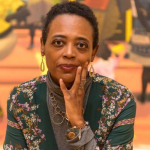

By Nadia Reese
Special to the AFRO
Everyone has interacted with social media in some way. Primarily used to connect people from around the world, recently, the social platforms have taken a political approach. Now, account holders are taking to these websites to spread awareness for issues of social injustice, among other causes.
Popular websites like Facebook and Instagram have been used to capture moments and incidences of racism and police brutality. We now know the names of George Floyd, Ahmaud Arbery, Jacob Blake and so many others because of courageous users who uploaded these occurrences on their social media accounts.
The posts gained traction on the web and spread throughout the globe, causing outbreaks of protests against police brutality in cities around the world.
As more people experience the power of the internet through using social media, others are using their platforms to find their voice and advocate for causes that resonate with them.
Viral movements like #BlackLivesMatter, #BlackGirlsVote, #MeToo and #StopKillingUs were created to combat social injustices by encouraging others to speak out.
#BlackLivesMatter
The Black Lives Matter movement was formed in 2013 shortly after 17-year-old Trayvon Martin was killed by security guard George Zimmerman in Florida, an incident that sent the Black community into an outrage. The organization was founded by Patrisse Cullors, Alicia Garza and Opal Tometi, with a mission to eliminate discrimination and violence inflicted by law enforcement and White supremacists against the Black community. On June 2, 2020, the hashtag “#Blacklivesmatter” reached even more accounts when users of all races and ethnicities posted blacked-out photos on Instagram as a response to the deaths of George Floyd, Ahmaud Arbery and Breonna Taylor. Under each post there were captions that said #BlackOutTuesday instead of #BlackLivesMatter. In May, George Floyd died after he was put in a chokehold by a police officer and Breonna Taylor died after being shot multiple times by law enforcement as they raided her boyfriend’s home. Throughout the Black Lives Matter movement, social media stars such as Tiktok influencer, Erynn Chambers and author and activist Roxane Gay, helped others understand what was happening by posting about police brutality, Black history and ways to support the movement. Gay posted information about Juneteenth, a newly created federal holiday which observes the emancipation of slaves, while Chambers used humor to speak out to have conversations on Tik Tok about the Black community. Since then, the Black Lives Matter movement has converted into a global network with chapters in 18 cities across the United States and abroad in the United Kingdom and Canada.

#MeToo
The #MeToo movement was founded by Black activist Tarana Burke in 2006. Burke, who was also a survivor of sexual violence and created this movement to help young people, the LGBQT+ community and all people of color who are survivors of sexual and domestic violence. The #MeToo movement went viral after actress Alyssa Milano accused producer, Harvey Weinstein of sexual assault. Later, many other actresses would step forward against Weinstein such as model Cara Deleveign and actress Salma Hayek. Through protesting, connecting individuals, partnering with organizations, and providing resources for healing, the #MeToo movement has made a global impact in eight other countries. MeToo also partnered with an organization known as the Global Fund for Women to effectively provide properly-equipped resources to help eliminate sexual and gender-based violence (SGBV) around the world.

#BlackGirlsVote
The Baltimore based organization, Black Girls Vote, was founded on Nov. 30, 2015 by Nykidra “Nyki” Robinson. The organization was founded on that day specifically to honor the life and work of Shirley Chisholm, a woman who inspired Robinson. Black Girls Vote supports Black women from all political parties to help them voice their concerns, opinions, beliefs as well as to engage, educate and empower Black girls. Black Girls Vote went viral in 2018 after the team was able to grab the attention of universities, colleges and highschools in DMV region. The goal was to encourage at least 2,018 college students to vote in the midterm elections.
At this time, they marched to the polls with the Morgan State University marching band.
To celebrate, the organization used their Party at the Mailbox campaign which sent decorative boxes with voter information out to Baltimore-area residents. During the 2020 Presidential Election, Black Girls Vote encouraged more students to hit the polls by publishing PSAs and hosting a zoom webinar with over 10,000 viewers. There are many chapters of the Black Girls Vote organization on college campuses in the DMV including Morgan State University, Howard University and American University.

#StopKillingUs
The movement, #StopKillingUs gained traction in 2015 as a response to the death of 18 year-old Michael Brown who died after being shot by a cop in Ferguson, Missouri. The phrase “stop killing us” became popular through an article by the New York Times titled, “Our Demand is Simple: Stop Killing Us”, by Jay Caspian Kang. The phrase was also posted on social media through paintings, graphic designs and on signs at protests. The hashtag is usually used along with #Blacklivesmatter and it resurfaced after the deaths of Ahmaud Arbery and George Floyd.
Movements like Black Lives Matter, Black Girls Vote, #MeToo and #StopKillingUs have not only stood up against these social injustices but also encouraged others to do the same. With the use of social media, issues like sexual violence, racism and police brutality were able to reach the world. Although these movements have attracted attention, the fight to end these injustices is not over yet.
Help us Continue to tell OUR Story and join the AFRO family as a member – subscribers are now members! Join here!
The post Viral Movements: How internet activism changed the world appeared first on AFRO American Newspapers .










